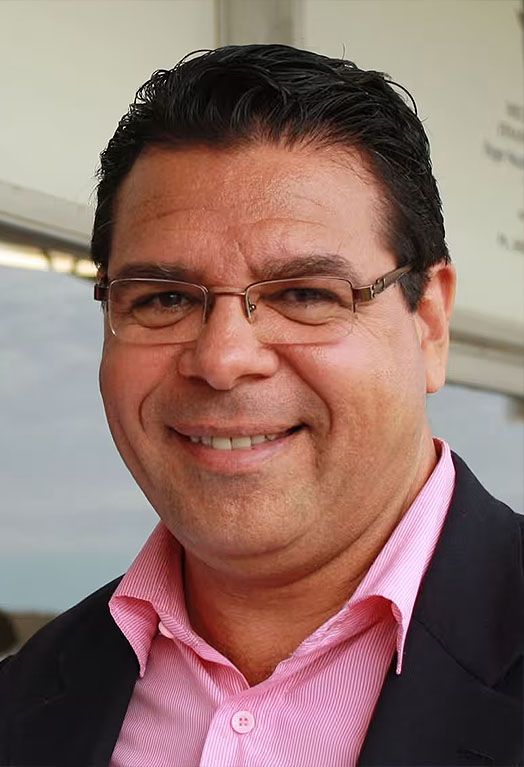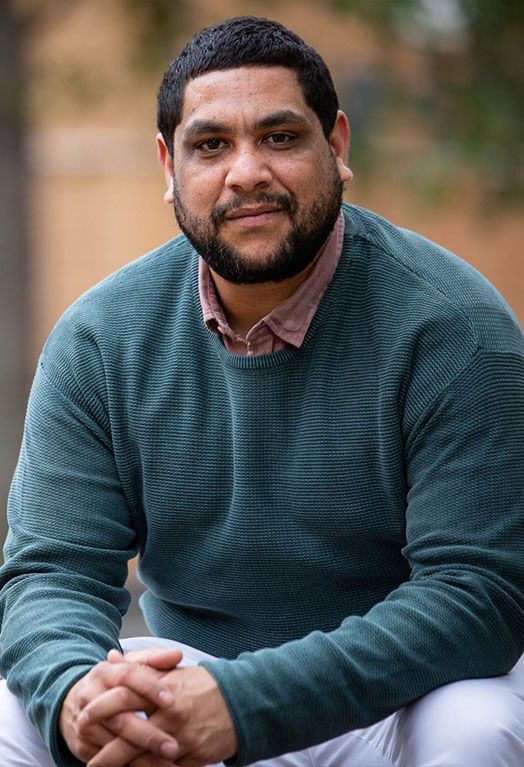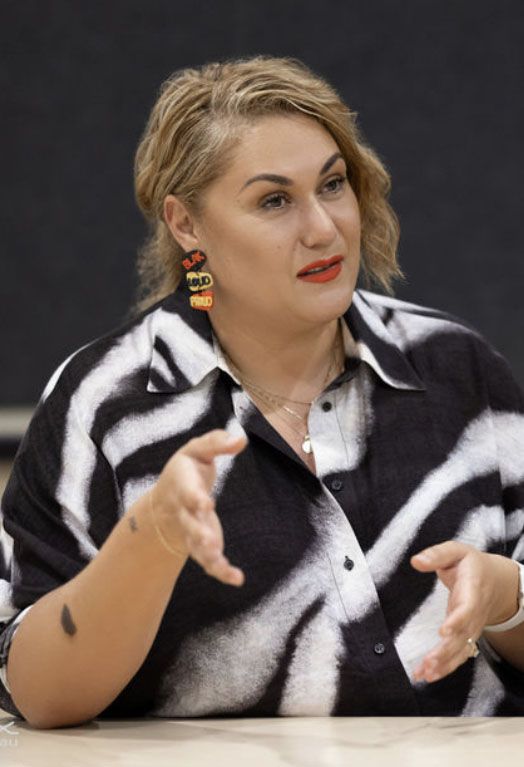Aden Ridgeway

Mr Aden Ridgeway has a long and distinguished career of service to Aboriginal people and the broader community. A Gumbaynggirr man, brought up by his mother, aunts and grandmother in Nambucca Heads, NSW, he is a widely recognised and respected Aboriginal leader.
Experienced in the public and private sector as a policy maker and strategic thinker, Aden has a broad understanding of Aboriginal issues around land rights, legislation, culture and heritage, Stolen Generations and access to services.
He has held prominent positions on the Sydney Regional Council of the Aboriginal and Torres Strait Islander Commission and the New South Wales Aboriginal Land Council. He was the first Aboriginal person to hold a Parliamentary leadership position in an Australian political party, and only the second Aboriginal person to be elected to Federal Parliament since Federation, serving as a Senator for NSW for eight years. He was the inaugural chairman of Indigenous Tourism Australia, and a former chair of the National NAIDOC Committee, Bangarra Dance Theatre and Indigenous Tourism Australia; and a former member of the National Indigenous Working Group on Native Title and the Council for Aboriginal Reconciliation.
In 2007, Aden co-founded the social change agency, Cox Inall Ridgeway, which worked to build cross-sector partnerships between the silos of government, corporates and communities. Currently on the board of The Healing Foundation and Muurrbay Aboriginal & Culture Language Co-operative, he has also served on the Australian Indigenous Education Foundation, Recognise, and UTS Council. Aden holds a Doctorate (Hon Lit) from the University of Technology, Sydney.
In his appointment as Commissioner, Aden will bring his skills of critical thinking and deep listening to bring diverse voices to the table.
Dr Todd Fernando

Dr Todd Fernando brings a wealth of experience in policy development, strategic leadership, and community advocacy to the role of NSW Treaty Commissioner. His work has been deeply shaped by his research into Indigenous kinship and masculinities, where he has explored the complexities of identity and power through an intersectional lens. This ongoing research has provided him with the critical insights needed to address systemic inequities and develop policies that are both inclusive and impactful.
In his previous role as Victoria’s LGBTIQ+ Commissioner, Dr Fernando led a statewide consultation that shaped a comprehensive whole-of-government strategy, significantly improving outcomes for LGBTIQ+ communities. His leadership in navigating complex social and political landscapes ensured that the voices of marginalised populations were central to the decision-making process. This work underscored his commitment to equity and deepened his capacity to implement strategic, community-informed policies.
Dr Fernando’s expertise extends across sectors, blending his academic research with practical experience in government and community advocacy. His focus remains on building inclusive systems that reflect the diverse needs of all communities, driving forward progressive change grounded in justice and respect.
Naomi Moran

Ms Naomi Moran is a Nyangbal and Arakwal woman from the Bundjalung nation in northern NSW and has direct bloodlines to the Dunghutti nation on the mid-north coast of NSW.
Prior to her appointment as Commissioner, she was CEO of Australia’s only independent, printed national Indigenous newspaper, the Koori Mail.
Naomi has an an extensive career in Indigenous Media and a strong grassroots connection to communities across NSW.
She serves as Co-Chair of First Nations Media Australia - the peak body for Aboriginal and Torres Strait Islander media - and serves as a member of the Federal Government's First Nations Digital Inclusion Advisory Group.
In 2024, Ms Moran was appointed to the national NAIDOC committee, and has served on the boards of two peak creative arts and performing arts organisations in Northern NSW, NORPA and Arts Northern Rivers.
Naomi is a prominent voice in indigenous media and maintains a deep commitment to sharing the stories and knowledge of Aboriginal and Torres Strait Islander peoples from across the nation.
Naomi has worked tirelessly to support and strengthen Indigenous community-controlled sectors through the self-determination of Australia's First Nations people to govern their own affairs and lead and deliver programs, projects and community initiatives by community, for community.